MassMATCH Quarterly News: Fall 2015
In This Edition:
- Give the Gift of Speech this Holiday Season--Bank Your Voice!
- Wanted! Your Gently-used Durable Medical Equipment!
- Stay Current with Assistive Technology in Your Field... Free
- AT and Dementia: Low-tech Approaches to Wandering
- REquipment Highlights
- Get AT Stuff Highlights
- Upcoming Events (opens the MassMATCH Events page)
Give the Gift of Speech this Holiday Season--Bank Your Voice!
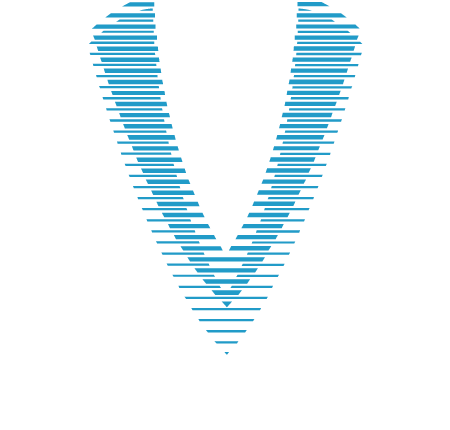 Thanks to VOCALiD there's a new way to be an "organ" donor
Thanks to VOCALiD there's a new way to be an "organ" donor
VOCALiD is a startup based in Belmont, Massachusetts that is dedicated to providing persons with limited speech, access to their unique vocal identities.
The company's patent-pending technology combines the vocal characteristics of a person who has unintelligible speech with a database of speech recordings from a matched donor. The result is a unique, yet familiar, synthesized voice that may be used with a speech generating device for clear spoken communication. (Check out this short Huffington Post video.)
Anyone who is familiar with the robotic voice used by Stephen Hawking or the smooth generic vocal delivery of an ATM or GPS system, can understand the potential impact of VOCALiD's technology. In her TED Talk, VOCALiD Founder Rupal Patel, Ph.D., quotes Henry Wadsworth Longfellow, "The human voice is the organ of the soul."
Patel is a speech scientist who was attending an assistive technology conference when she had her "Ah ha" moment. There she observed individuals of different ages using speech generating devices and sounding very much the same. Yet children sound different from teens who sound different from adults who sound different from seniors. Assistive technology, she realized, could do better.
It's not a new complaint. As Spectronics blogger Jane Farrell points out, while there are many new voices created all the time by companies such as Nuance, Acapela, Ivona, and Microsoft, the vast majority are adult male and female voices reflecting different accents and nationalities. Few options exist for children, adolescents and seniors because the voices are mostly created for commercial purposes. Regardless, Patel's point is broader. Generic voices will always be generic; most of us want to sound like ourselves.
The VOCALiD Difference
VOCALiD voices are different because they are built off the vowel sounds of a person with unintelligible speech. Preserved in these source sounds are pitch, loudness, and tempo: unique vocal characteristics that help distinguish and announce each individual's identity. Patel refers to these characteristics as a speaker's "vocal DNA."
VOCALiD technology synthesizes custom voices by matching target recipients with voice surrogates of a similar age, gender, culture and other characteristics. Voice-donor surrogates provide several hours of recorded speech which is then blended with the target individual's source sounds.
The effect is a hybrid synthetic voice that sounds as though the target speaker has just cleared their throat and begun speaking more distinctly. In the words of one mother of a VOCALiD voice recipient (quoted in Patel's TED Talk), "This is what William would have sounded like had he been able to speak."
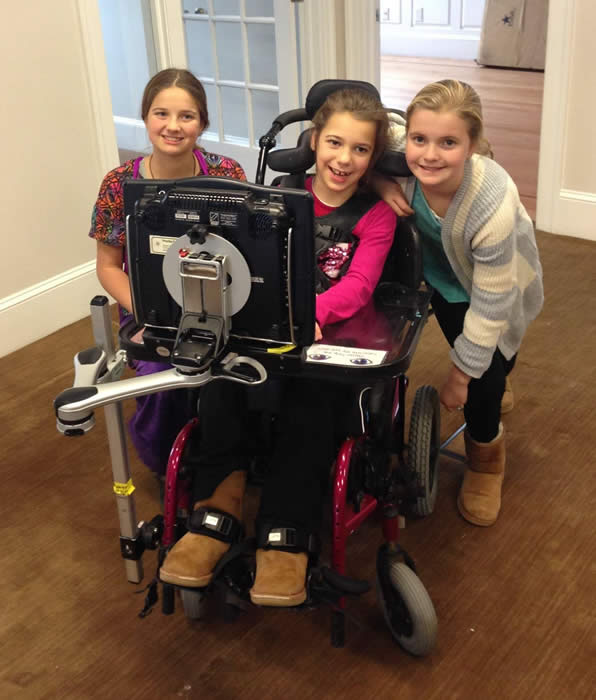 |
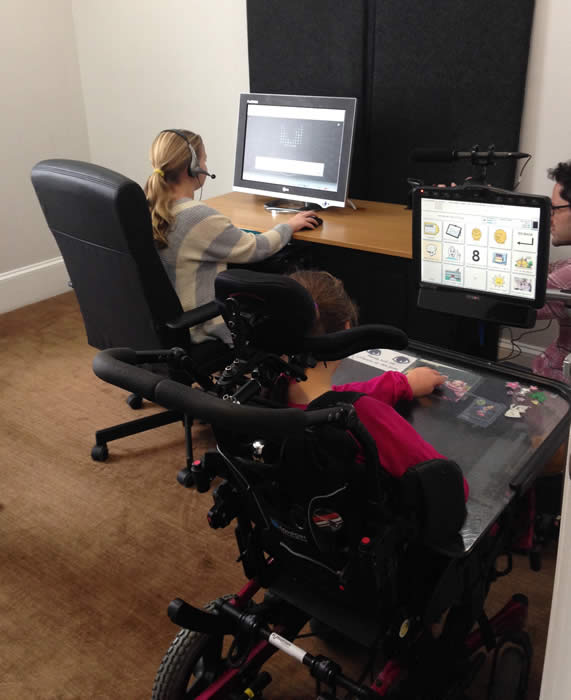 |
A young VOCALiD client with her two sisters |
Voice donating for her sister with VOCALiD in Belmont |
Donating Requires Time, not Surgery!
VOCALiD's custom-voice product will officially become available in 2016. In the meantime, the company has launched the Human Voicebank, VOCALiD's online initiative to collect 100,000 registered voice donors by 2020. Here is where any English speaker with intelligible speech can make a real difference in the life of someone with a speech disorder. All it takes is time, an internet connection, and a headset. Needles and scalpels are not required.
"It's exciting," Patel expressed in a recent phone interview with MassMATCH. "We have middle schoolers organizing voice drives at their schools and for their Bar and Baht Mitzvahs!"
To fully bank a person's voice, 3,500 phrases must be read aloud, a task which takes the average donor between 5 and 7 hours. It may sound like a lot, but Patel is quick to point out that recording sessions are broken up. "Donors record in 15 or 20 minute blocks. Voice drives are a lot like running clubs; participants motivate each other."
So far 10,000 individuals have initiated voice donations at the site and roughly 1,000 have completed their gift. She emphasizes that donors of all ages, backgrounds, accents, and voice types are welcome (and in the future, speakers of other languages). Since each voice is as unique as a fingerprint, "We need everyone."
From Beta Phase to 2016 Launch
Patel expects the Human Voicebank to dramatically advance the science of speech synthesis and help bring down the cost of creating a VOCALiD voice to the consumer. "Unfortunately," she acknowledges, "building a custom voice is a pretty expensive process."
Patel is on leave from Northeastern University where she is director of the Communication Analysis and Design Laboratory as well as a professor in the Departments of Communication Sciences and Disorders and Computer and Information Science. Originally she created VOCALiD's technology with funding from the National Science Foundation (NSF). Now she's reinventing herself as a social entrepreneur. "I started this company based on the premise that there are plenty of people willing to donate their voices to change lives and advance the science. It's our mission to make affordable voices for people who need them."
To do so, Patel has new funding to commercialize the technology from the NSF as well as the National Institutes for Health (NIH). She is also working with a select group of "trailblazer" clients recruited by VOCALiD's Indiegogo campaign. Four trailblazers paid $10,000 and will receive their VOCALiD voices by the end of 2015.
Currently Patel and her team are refining these synthesized voices and troubleshooting any technical glitches that arise. Clients in this beta phase are users of a range of speech generating devices and apps. VOCALiD is working with the makers of those products and others, including Tobii/Dynavox, Lingraphica, Prentke-Romich, and Speak For Yourself, to ensure its voices work smoothly with their technologies.
In addition to trailblazers, VOCALiD’s Indiegogo campaign has taken 52 pre-orders at the promotional rate of $1,249. Patel emphasizes the promotional rate is well below her current costs, but is helping to get the word out about custom voices and the Human Voicebank initiative. VOCALiD will fulfill these orders by late 2016 and Patel says she has the capacity to take more.
VOCALiD’s Moment?
Today an estimated 2.5 million individuals in the United States have unintelligible speech and increasingly people are turning to technology for all kinds of solutions. Indeed it could be the right moment for VOCALiD and the Human Voicebank. The now ubiquitous tablet computer is helping lower the stigma (and cost) of speech generating technologies, particularly for students but also for seniors and other adults. And the reticence most seniors have had toward adopting new technologies will soon dissolve into the high technology expectations of the aging baby boomers. Perhaps it is not unreasonable to imagine that in the not-too-distant future many of us will recognize the foresight of banking our voices, not only to be charitable, but also to help ensure we retain our vocal identities throughout life’s twists and turns.
Interested in donating your voice? Register and get started at the Human Voicebank website. Voicebank version 2.0 is expected in early December and will integrate analytics and new features for motivation. Also consider organizing a Voice Drive as a VOCALiD Ambassador. Email VOCALiD for your Voice Drive Toolkit.
"For me," Patel says, "it's much more than about just donating voices. It's learning about disability, about having empathy and taking action."
Wanted: Your Gently-used Durable Medical Equipment!
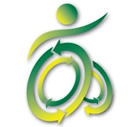 Do you have DME that is no longer being used? Get it into the right hands with REquipment!
Do you have DME that is no longer being used? Get it into the right hands with REquipment!
REquipment finds appropriate new homes for gently-used durable medical equipment; refurbished wheelchairs, scooters, lifts and more are provided free of charge to children and adults with disabilities and seniors. The program offers pickup and delivery services within Greater Boston and Central Massachusetts (statewide expansion plans are underway) and is a great way to make sure your DME continues serving its intended use.
Items currently accepted for donation range in size from pediatric to bariatric and include:
- wheelchairs (manual and power of all types),
- scooters,
- rollator walkers,
- knee walkers
- sling lifts,
- adapted positioning and seating equipment,
- adapted strollers,
- walkers and gait trainers,
- shower/bath chairs (from simple models to roll-in and tilt devices)
- accessories such as bed rails, knee walkers and more.
Items REquipment does NOT currently accept:
- hospital beds,
- commodes,
- canes and crutches,
- custom-built ramps and stair lifts,
- medical machines (such as CPAP and feeding machines) and
- medical supplies.
There are great reasons to choose REquipment for your DME donation. First, devices donated to REquipment are refurbished and provided at no cost to households that can use them. This keeps valuable equipment from ending up in landfills or getting harvested for scrap metal. Second, REquipment posts available items at its live online inventory, including photos and device dimensions so website visitors can make appropriate selections (preferably in consultation with an OT or PT). No letters of medical necessity or insurance paperwork is needed and device turnaround is generally within 1-2 weeks of posting. You can be rest assured your donation will be appreciated and used as it was intended!
REquipment also makes donating as easy as possible. The program offers free pick up within its service area. A receipt from its 501(c)3 partner, The Boston Home, can also be provided for tax deduction purposes.
REquipment Program Director Randi Sargent says in-demand items include shower chairs, foldable wheelchairs and powered wheelchairs and scooters, “Particularly the roll-in shower chairs because they are not covered by Medicare.” Portable ramps, she reports, are also very desirable. “If you have one you are not using, please contact us. We don’t receive many.”
Have equipment you believe someone else could use? Here are some considerations to weigh:
- Is the item in working condition? Be honest about what repairs are needed. Would you want to use this item yourself?
- Do you have all the components such as chargers, cords, and instruction manuals? Gather them with the device.
- Do you want to donate or sell the item? DME donations to REquipment are tax deductible.
- Do you have a specific category of user in mind? People with ALS, MD or MS have access to loan closets just for their communities and you may prefer to connect with those organizations.
Learn more about donating to REquipment.
Find other reuse programs in Massachusetts (particularly if you have an item REquipment does not currently accept).
Email REquipment with questions about donating or acquiring DME.
Stay Current with Assistive Technology in Your Field... Free!
 Subscribe to the Accessible Technology Coalition's Email Calendar of Free Webinars
Subscribe to the Accessible Technology Coalition's Email Calendar of Free Webinars
The AT Coalition publishes a monthly email digest of free webinars on AT topics available from around the Web. This is a terrific resource! The calendar pulls together professional development opportunities from a range of sources to consult and share.
Subscribe and keep up to date on free professional development opportunities from the Job Accommodations Network, the FCC, Equal Access to Software and Information (EASI), regional ADA Centers, ADA Online, the Center for Technology and Disability (CTD), AbleNet, Georgia Tools for Life, the Texas Assistive Technology Network, the National Center on Accessible Educational Materials (AEM), the Special Education Technology Center (SETC), Communication and AT Scotland (CALL), the PACER Center and more!
Listings are organized under: Free Webinars-General & Adult; Free Webinars-K-12 Educators & Parents; and Recently Archived Professional Development.
The AT Coalition (ATC) began with ARRA funds through the U.S. Dept. of Commerce and the California Emerging Technology Fund and today is maintained as a volunteer effort by Lisa Wahl. Email Lisa to subscribe.
AT and Dementia: Low-tech Approaches to Wandering
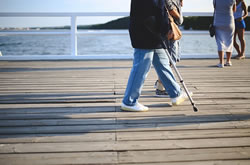 High-tech assistive technology (AT) strategies for wandering have been on the rise for several years. Everything from insoles and bracelets with GPS tracking to slick wifi-enabled home monitoring technologies are now on the market (coined "nana technologies" according to this NYTimes blog post). Each is designed to assure family members a loved one won't get lost.
High-tech assistive technology (AT) strategies for wandering have been on the rise for several years. Everything from insoles and bracelets with GPS tracking to slick wifi-enabled home monitoring technologies are now on the market (coined "nana technologies" according to this NYTimes blog post). Each is designed to assure family members a loved one won't get lost.
The popularity of these devices should come as no great surprise. The prevalence of dementia is steadily increasing and wandering, according the the Alzheimer's Association, can occur at any stage of the disease. In the U.S., 5.3 million adults have Alzheimer's in 2015. Worldwide, 47.5 million people are living with dementia--a figure that is projected to more than triple by 2050 due to global population aging (see the Word Health Organization's 10 Facts on Dementia).
AT strategies for wandering are not all high tech, however. Indeed, elder care and AT specialists emphasize that often the most effective strategies are adjustments to a person's living environment that work to decrease anxiety and confusion or, conversely, take advantage of it.
Last August, MassMATCH News Quarterly had an opportunity drop in on the Home and Community-based Supports (HCBS) conference in D.C. and speak with staff members from the Georgia's Tools for Life (AT Act program). Rachel Wilson, TechMATCH Specialist, offered the following low-tech ideas for wandering:
Memory boxes can help reassure individuals with dementia that they are right where they belong. Memory boxes can be used to display cherished keepsakes such as familiar photos and may be particularly helpful for seniors no longer living at home.
Musical Slide Shows offer a related higher-tech approach. A tablet computer with an app or Animoto on a desktop can be used to play favorite soothing music synced to photos of family. Video slide shows may be cued to play at key disorienting the times of day such as waking up (with an app like Picture Scheduler).
Weighted Blankets:
some individuals with dementia are soothed by weighted blankets and find they help with staying in bed and sleeping through the night.
Confounding door locks or locks on doors that are not at eye level and bells on door knobs are additional simple anti-wandering strategies that can alert caregivers or help keep elders safe.
Strategies to discourage wandering that make use of dementia's confusion include painting exit doors the same color as the wall, door knob included. Doors may also be camouflaged with bookcase stickers designed for this purpose.
Tools for Life Accommodations Specialist Ben Jacobs notes, too, that some caregivers take advantage of a dementia phenomenon known as "visual cliffing," or the perception that the color black is a hole in the floor. Solutions that make use of this confusion include laying black rugs, tape or paper in front of exit doors to trigger an aversion to walking across these areas.
The best approach of all, of course, may be to recognize what is triggering an individual to wander and work to deter the behavior. To help, the Alzheimer's Association provides tips to reduce wandering such as:
- creating a routine for daily activities to provide structure,
- identifying the most likely times of day wandering may occur and plan activities such as exercise to reduce restlessness,
- avoiding busy places that can cause disorientation, and
- reducing fluid intake two hours before bedtime.
Read the rest at this Wandering Behavior topic sheet (PDF).
This article was adapted from an article first published in the Fall 2015 edition of AT Program News.
Reminder: MassMATCH makes no endorsement, representation, or warranty expressed or implied for any product, device, or information set forth on its Web site. MassMATCH has not examined, reviewed, or tested any product or device here referred to.
REquipment Highlights
REquipment is a great way to obtain FREE, gently-used, durable medical equipment (DME) for use by individuals and families in Greater Boston and Central Massachusetts. As of this writing, the REquipment inventory includes the following available items:
- 1 Ottobock tilt adapted stroller (for an adult)
- Invacare half-length electric bed rails (for an adult)
- 6 mechanical/sling lifts, including the Invacare Manual Lift (9805P) (for an adult)
- 2 bed trapeze bars (1 bariatric)
- 1 KneeRover knee walker/scooter (for an adult)
- 2 rollators, including a 3 wheel Winnie Walker/Life style (for an adult)
- 2 shower chairs (for adults)
- 13 manual wheelchairs, including a Quickie Tilt in Space (Quickie Iris) (for an adult)
GetATStuff Highlights
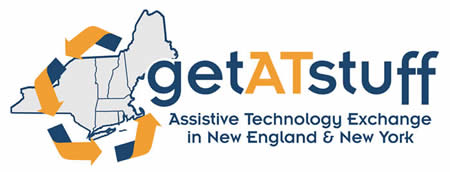
The Assistive Technology Exchange in New England is now the Assistive Technology Exchange in New England AND New York! GetATStuff is the "Craig's List" for AT. Currently there are hundreds of items posted as for sale or free.
As of this writing, GetATStuff highlights include:
- 1 Vision-related items, including a portable video magnifier (ONYX Deskset XL) in North Providence, RI for $2,000 OBO.
- 1 Hearing-related item: a Superprint 4425 TTY for $350 OBO in North Providence, RI.
- 4 Speech Communication-related items, including a Dynavox Maestro Series 5 with Interaact and Windows 7 Home Premium for $2,000 OBO in Manchester, NH.
- 1 Learning, Cognitive, and Development items, including a Talk Tools Original Horn Set and Talk Tools Straw Kit for $25 OBO in Paradise Valley AZ.
- 86 Mobility, Seating, and Positioning related items, including a Free Invacare I-Fit shower chair new in box in Boston.
- 78 Daily Living related items, including a Free 30" Transfer Board in Boston.
- 9 Environmental Adaptation related items, including a wheelchair elevator for outdoor use for Free in West Roxbury.
- 11 Transportation and Vehicle Modification related items, including a wheelchair van for $3,500 OBO in Beverly.
- 4 Computer-related items, including a Tobii PCEye Go for $1,500 OBO in Amherst.
- 2 Recreation items including a TFH High Back outdoor swing, child size, with ropes for $40 in Whitinsville, MA.
Go to GetATStuff to search items by category or geography or to list what you need.
Learn about additional AT reuse sites.

